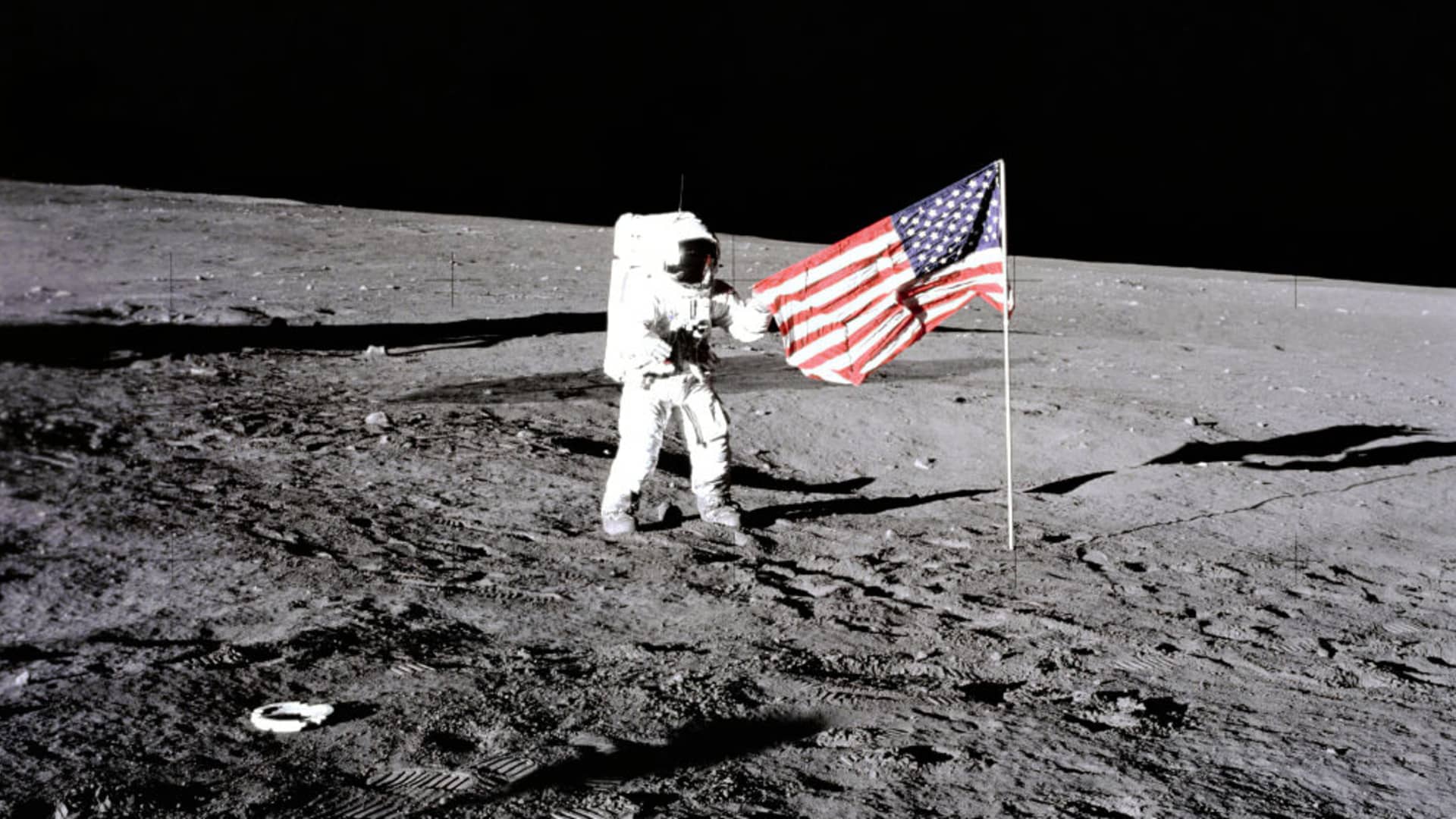
Japan recently became the fifth nation to successfully complete a soft landing on the moon’s surface, joining a select few countries — the U.S., Russia, China and India — in accomplishing this feat. But moon landings are likely to become more common over the next few years. Globally, more than 100 lunar missions, both by private companies and by governments, are expected to take place by 2030, according to the European Space Agency.
So why are all these countries eager to get back to the moon?
“The moon is a proving ground,” said Michelle Hanlon, executive director at the Center for Air and Space Law at the University of Mississippi. “Humanity needs to get to the moon in order to learn how to live in space, in order to learn how to utilize the resources of space. And that is really the stepping stone to all of the vast riches in the universe.”
Some of the riches that these countries and companies seek include rare-earth metals and the isotope helium-3, which, while rare on Earth, is abundant on the moon and can theoretically be used to power nuclear fusion reactors.
“We haven’t figured out quite how to do it yet. There’s a lot of theories about it. But, once we figure that out, the helium-3 on the moon could seriously power the Earth, the entire Earth, for centuries,” Hanlon said.
And then there is the presence of another vital natural resource that countries are after: water. Aside from being crucial for human survival, water can be used to make rocket fuel, meaning the moon could one day become a refueling station for rockets and a springboard for deeper space exploration.
“Whoever gets to establish a significant lunar presence is making a statement about their political system, about their economic system, about who is ahead in the geopolitical competition,” said Dean Cheng, senior advisor for the China program at the United States Institute of Peace. “But a second, newer part to this is the belief that there are significant resources on the moon that are useful to Earth, or useful for future space flight.”
To find out more about the new moon race and why the U.S. and China are currently the leaders, watch the video.





